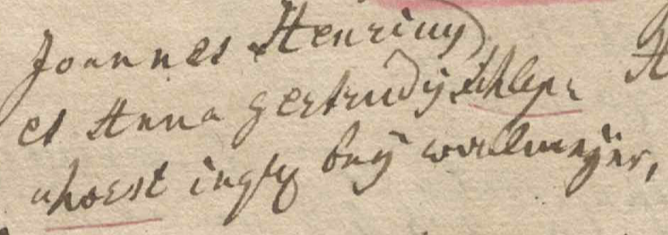Since there always seem to be a few of our members who are experts in whatever odd task is needed, I'd like to ask if anyone can decipher this handwriting. I'm trying to do a little genealogy and this one defeats me.
It's from a church register in a small town in Germany, documenting a baptism in 1790. It's in Latin, as were all these records until the 19th century when they switched to German. I've excerpted the part that stumps me. This is the part that shows the child's parents. I get that the father was John Henry, and the mother was Anna Gertrude, but the the rest of it baffles me.
The handwriting is sloppy, but any guesses would be appreciated.
It's from a church register in a small town in Germany, documenting a baptism in 1790. It's in Latin, as were all these records until the 19th century when they switched to German. I've excerpted the part that stumps me. This is the part that shows the child's parents. I get that the father was John Henry, and the mother was Anna Gertrude, but the the rest of it baffles me.
The handwriting is sloppy, but any guesses would be appreciated.

